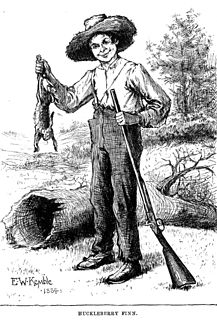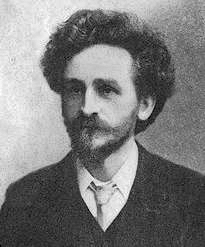
Thought encompasses an "aim-oriented flow of ideas and associations that can lead to a reality-oriented conclusion". Although thinking is an activity of an existential value for humans, there is no consensus as to how it is defined or understood.
The bystander effect, or bystander apathy, is a social psychological phenomenon in which individuals are less likely to offer help to a victim when other people are present. The greater the number of bystanders, the less likely it is that one of them will help. Several factors contribute to the bystander effect, including ambiguity, group cohesiveness, and diffusion of responsibility that reinforces mutual denial of a situation's severity.
Diffusion of responsibility is a sociopsychological phenomenon whereby a person is less likely to take responsibility for action or inaction when others are present. Considered a form of attribution, the individual assumes that others either are responsible for taking action or have already done so. Assumption of responsibility tends to decrease when the potential helping group is larger, resulting in little aiding behavior demonstrated by the bystander(s). Causes range from psychological effects of anonymity to differences in gender. Implication of behaviors related to diffusion of responsibility can be threatening as there have been increases in moral disengagement and helping behavior. The infamous murder case of Kitty Genovese and increased murders in WWII can be attributed to diffusion of responsibility.

Watership Down is a 1978 British animated adventure-drama film, written, produced and directed by Martin Rosen and based on the novel of the same name by Richard Adams. It was financed by a consortium of British financial institutions and was distributed by Cinema International Corporation in the United Kingdom. Released on 19 October 1978, the film was an immediate success and it became the sixth most popular film of 1979 at the UK box office.
In psychology, the subconscious is the part of the mind that is not currently in focal awareness. The word subconscious represents an anglicized version of the French subconscient as coined by the psychologist Pierre Janet (1859–1947), who argued that underneath the layers of critical-thought functions of the conscious mind lay a powerful awareness that he called the subconscious mind.

Rabbiting is the sport of hunting rabbits. It often involves using ferrets or dogs to track or chase the prey. There are various methods used in capturing the rabbit, including trapping and shooting. Depending on where the hunting occurs, there may be licenses required and other rules in regards to methods being used.

Rabbit Hole is a play written by David Lindsay-Abaire. It was the recipient of the 2007 Pulitzer Prize for Drama. The play premiered on Broadway in 2006, and it has also been produced by regional theatres in cities such as Los Angeles, Philadelphia and Pittsburgh. The play had its Spanish language premiere in San Juan, Puerto Rico in Autumn of 2010.

The Petit Basset Griffon Vendéen, or PBGV, is a breed of dog of the scent hound type, bred to trail hares in bramble-filled terrain of the Vendée district of France.
Word Association is a common word game involving an exchange of words that are associated together. The game is based on the noun phrase word association, meaning "stimulation of an associative pattern by a word" or "the connection and production of other words in response to a given word, done spontaneously as a game, creative technique, or in a psychiatric evaluation."

The Japanese hare is a species of hare native to Japan.
Dream incubation is a practiced technique of learning to "plant a seed" in the mind, in order for a specific dream topic to occur, either for recreation or to attempt to solve a problem. For example, a person might go to bed repeating to themselves that they will dream about a presentation they have coming up, or a vacation they recently took. While somewhat similar to lucid dreaming, dream incubation is simply focusing attention on a specific issue when going to sleep.

Stanley is an American animated television series that aired on Playhouse Disney based on the series of children's books written by "Griff", also known as Andrew Griffin. It was produced by Cartoon Pizza and was developed for television by Jim Jinkins and David Campbell.

Benji the Hunted is a 1987 children's drama film about a dog trying to survive in the wilderness. It was released by Walt Disney Pictures. This was the last Benji movie to star Benjean, daughter of Higgins, in the title role.
"The Dog" is the 21st episode of Seinfeld. The episode was the fourth episode of the show's third season. It was written by series co-creator Larry David and first aired on October 9, 1991.

The Kritikos Lagonikos is a hunting breed of dog from the island of Crete, in Greece. It is considered to be one of the oldest hunting breeds in Europe, with a history that goes back to 4,000 years ago.

"Dog Star" is a 1962 science fiction short story by British writer Arthur C. Clarke about an astronomer and his dog, Laika. The story was also published under the title "Moondog".
Paz, also known as The Paz Show or Paz the Penguin, is an animated television series that debuted on February 24, 2003 on Discovery Kids and TLC in the United States. It also aired on Treehouse TV in Canada, and on ITV in the United Kingdom. The show was produced by Telescreen BV, Egmont Imagination, King Rollo Films and Open Mind Productions The series was based on a series of books written and illustrated by Mary Murphy.

A goal is an idea of the future or desired result that a person or a group of people envisions, plans and commits to achieve. People endeavor to reach goals within a finite time by setting deadlines.

Adam and Dog is a 2011 American animated short film by Minkyu Lee. The film was nominated for Best Animated Short Film for the 85th Academy Awards and won Best Animated Short Subject at the 39th Annie Awards.
Personal goal setting is goal setting performed by individuals who want to achieve objectives that will result in the betterment of themselves or their situation. It is usually done through a systematic process that involves thought, determination and execution. Common personal goals include losing weight, achieving good grades, and saving money.














